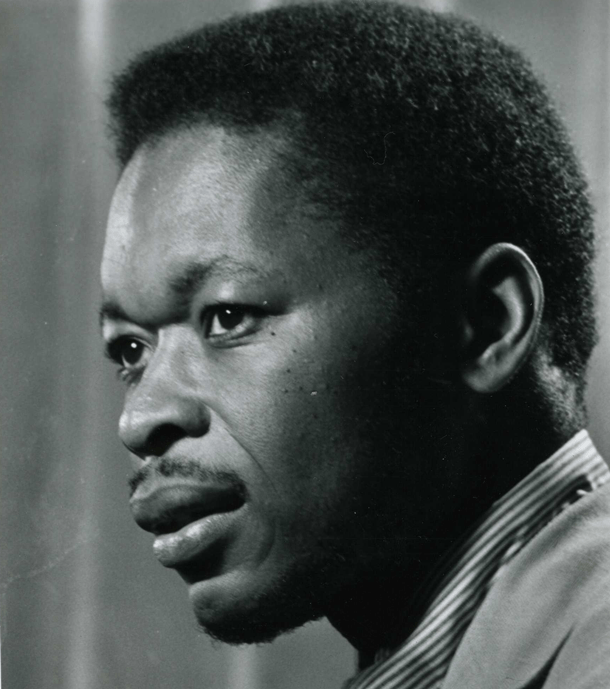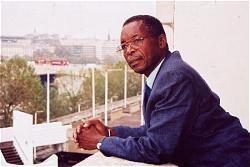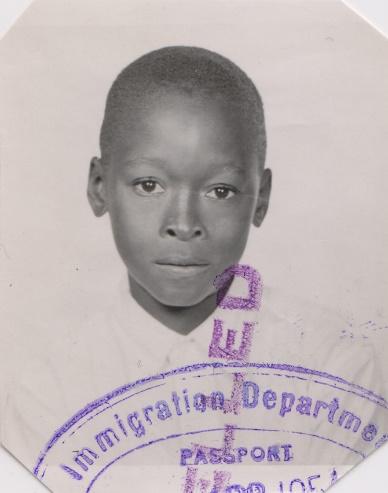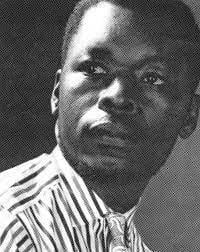Lenford Alphonso Garrison
He was an educationalist, community activist and historian whose life’s work was to catalogue the development of the Black British identity and its history and promote the works of young Black writers. To this end, he set up ACER and co-founded the Black Cultural Archives.
1943
2003
Jamaica
Jamaican
Garrison appears on one of the banknotes of Brixton’s independent currency, the Brixton Pound.
Garrison’s early training was as a photographer, a passion from his childhood. He studied at King’s College London and went on to become a specialist medical photographer at Guy’s Hospital, as well as an active freelance photographer for the West Indian Gazette. His educationalist training began in 1971 when he attended Ruskin College, gaining a diploma in development studies. He later gained a BA at the University of Sussex in African history and Caribbean history, then went on to an MA in local history from Leicester University
In his work on Rastafari and identity Garrison drew the conclusion that the British education system was failing Black children as it denied the reality or existence of Black history or culture. He believed that given the right opportunity [Black children] can become an asset to [British] society. He argued that what was required was an educational resource that was multi-cultural, recognising and acknowledging Black history. In order to do this ACER (Afro-Caribbean Education Resource) was set up. Its aim was to give Black children a sense of identity and belonging to be proud of, and one that could be traced back to their African roots. It would make them Black British citizens, with a part to play in multicultural Britain.
Garrison saw ACER as an archive of Black history from which educational material could be developed for school children of all ages and abilities. He campaigned for two years with the Inner London Education Authority (ILEA) and others for the funding and resources until 1977, when the ACER project was launched with Garrison as director. ACER’s Black history educational packs, first introduced at Dick Sheppard School in Brixton, went on to be used all over the country. Of the many schemes that ACER organised, the most successful was the Young Penmanship awards for creative writing about their reality and experience as Black young people in Britain. The award helped launch the careers of many Black professionals, including the playwright Michael McMillan, novelist and barrister Nicola Williams, the music critic Clive Davis and Dr Michael Beckles. When ILEA was dismantled in 1988 ACER closed due to lack of funding. ACER’s legacy can be seen today in Black history being part of the mainstream British educational curriculum and its work has inspired the Dutch to develop similar multi-cultural learning.
In the late 1980s, Garrison took the ACER idea to Nottingham, where he became Director of the ACFF (African Caribbean Family and Friends) Centre. There he was instrumental in establishing EMACA — East Midlands African Caribbean Arts — an organisation that promotes positive cultural practice in the arts, particularly the Black visual arts. He also developed local history work around George Africanus, Nottingham’s first Black entrepreneur.
Spouse – Marie
Son – Tunde
https://brixtonblog.com/2014/11/win-tickets-to-inaugural-len-garrison-lecture-at-bca/ accessed 23/06/2022
https://alchetron.com/Len-Garrison accessed 23/06/2022
https://www.migrationmuseum.org/len-garrison/ accessed 23/06/2022
https://neu.org.uk/media/6511/view accessed 23/06/2022
https://en.wikipedia.org/wiki/Len_Garrison accessed 23/06/2022





